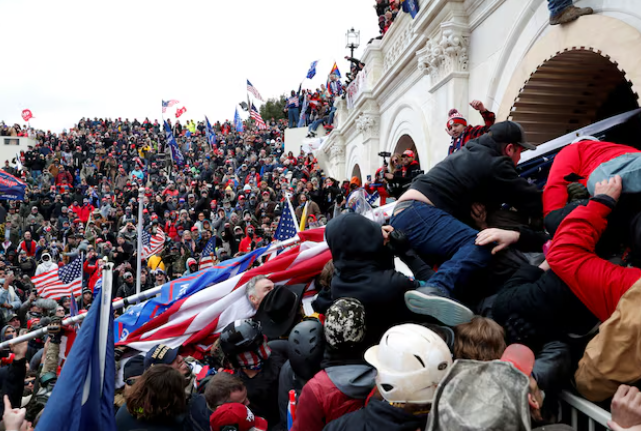A U.S. judge on Friday publicly released additional evidence collected by prosecutors in the federal criminal case against former President Donald Trump, who faces accusations of trying to overturn his 2020 election defeat.
This newly unsealed evidence consists of hundreds of pages, many marked as “sealed” or redacted, and includes material referenced in a comprehensive court filing from Special Counsel Jack Smith earlier this month. Smith argued that Trump, the Republican presidential candidate for this year’s election, does not enjoy immunity from the ongoing allegations.
The unsealed documents feature excerpts from interviews conducted during Congress’s official investigation into the January 6, 2021, assault on the U.S. Capitol by Trump’s supporters. While the names of witnesses appear blacked out, some can be identified by connecting them to known events. For example, former Attorney General William Barr recounts being called to the White House after stating that the election had not been marred by widespread fraud, expressing his expectation of being fired.
Shortly after that interview, Trump announced on social media that Barr had stepped down.
Smith’s filing contained little new information but detailed Trump’s attempts to retain power following his election loss, including conversations with family members and aides. The evidence compilation served as an attachment to Smith’s filing, but the public release faced delays to allow Trump time to object.
Much of the evidence, including witness interview reports, grand jury testimony transcripts, and records obtained through search warrants, has been redacted in the public release. Trump’s legal team argued against releasing any material before the November 5 election, successfully postponing its publication by a week. Ultimately, they chose not to appeal U.S. District Judge Tanya Chutkan’s decision to release the redacted documents.
Trump has pleaded not guilty to four criminal charges, alleging he engaged in a multipart conspiracy to obstruct the collection and certification of his election defeat to Democrat Joe Biden.
The case has encountered delays due to a U.S. Supreme Court ruling that grants former presidents broad immunity for actions taken while in office. Consequently, the trial will not occur before the election, where Trump will face Democratic Vice President Kamala Harris.
Trump argues that the Supreme Court’s decision should lead to the dismissal of the entire case. Experts suggest that if Trump wins in November, he might direct the U.S. Department of Justice to drop the charges.

